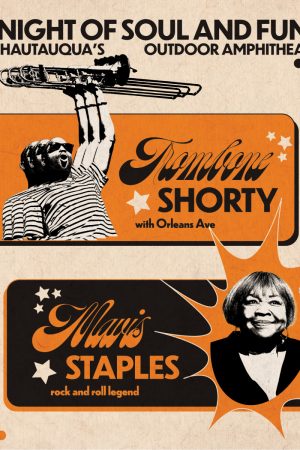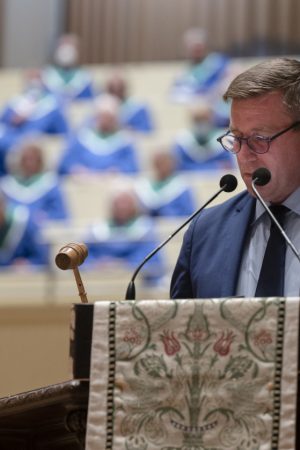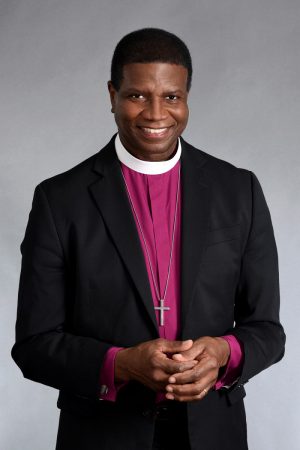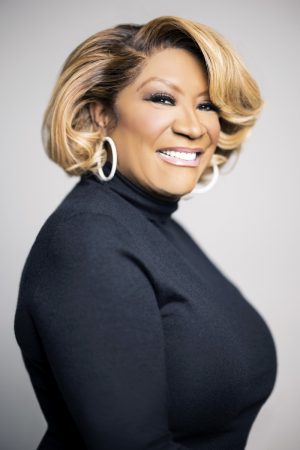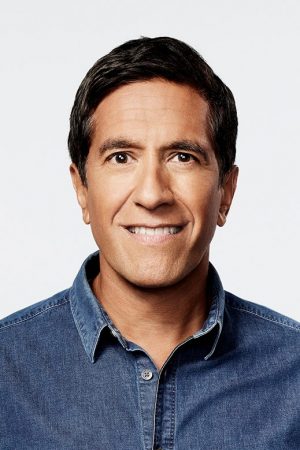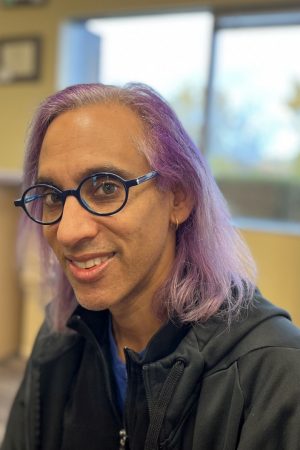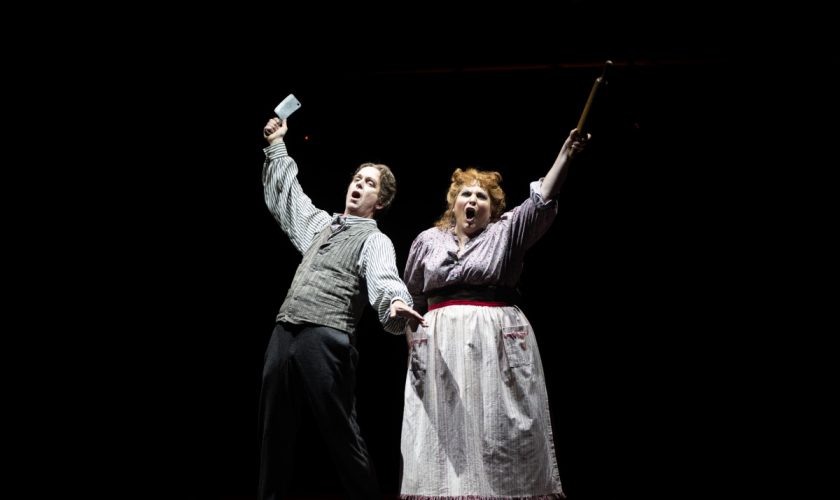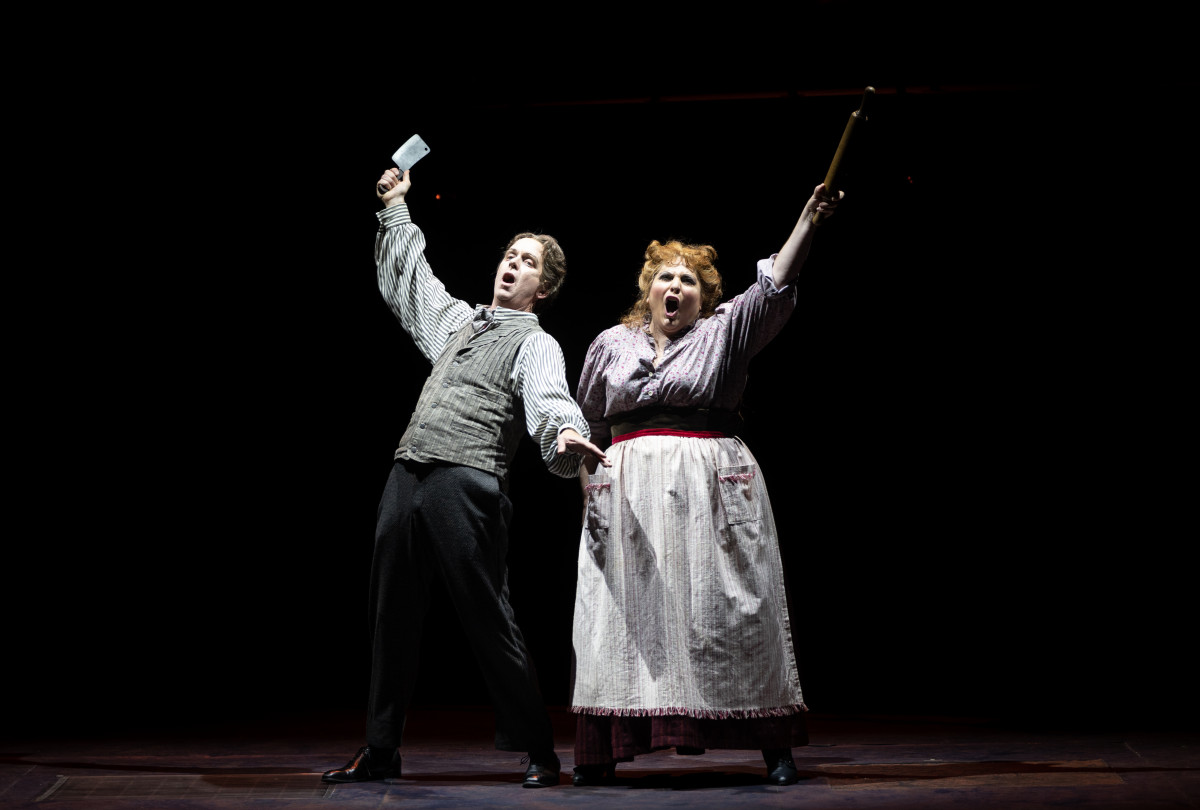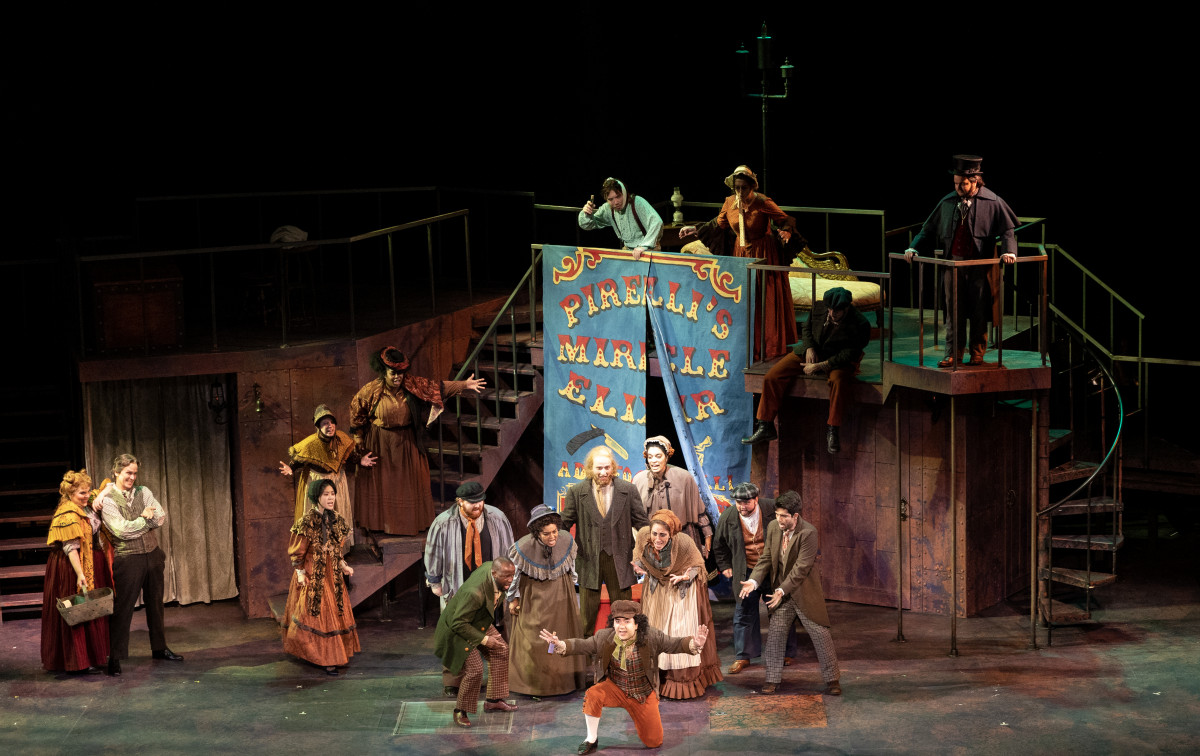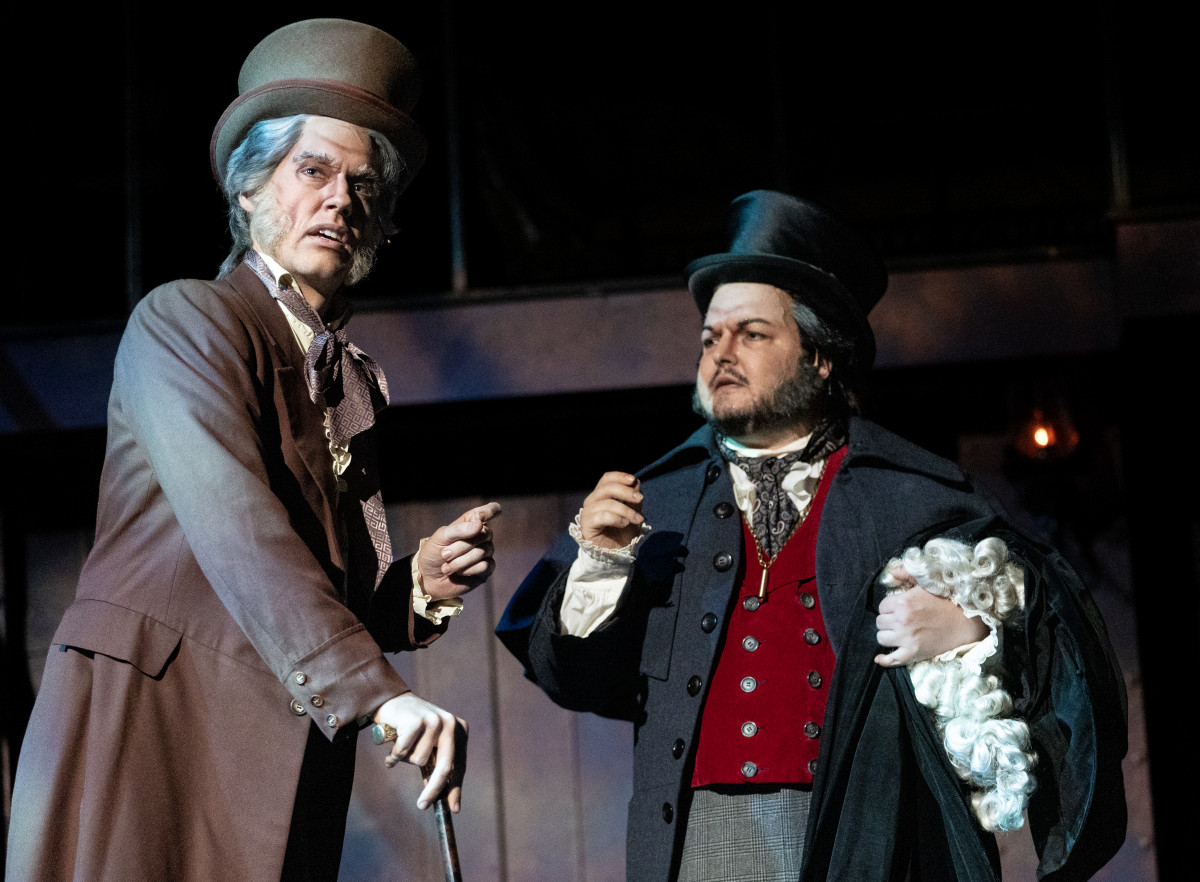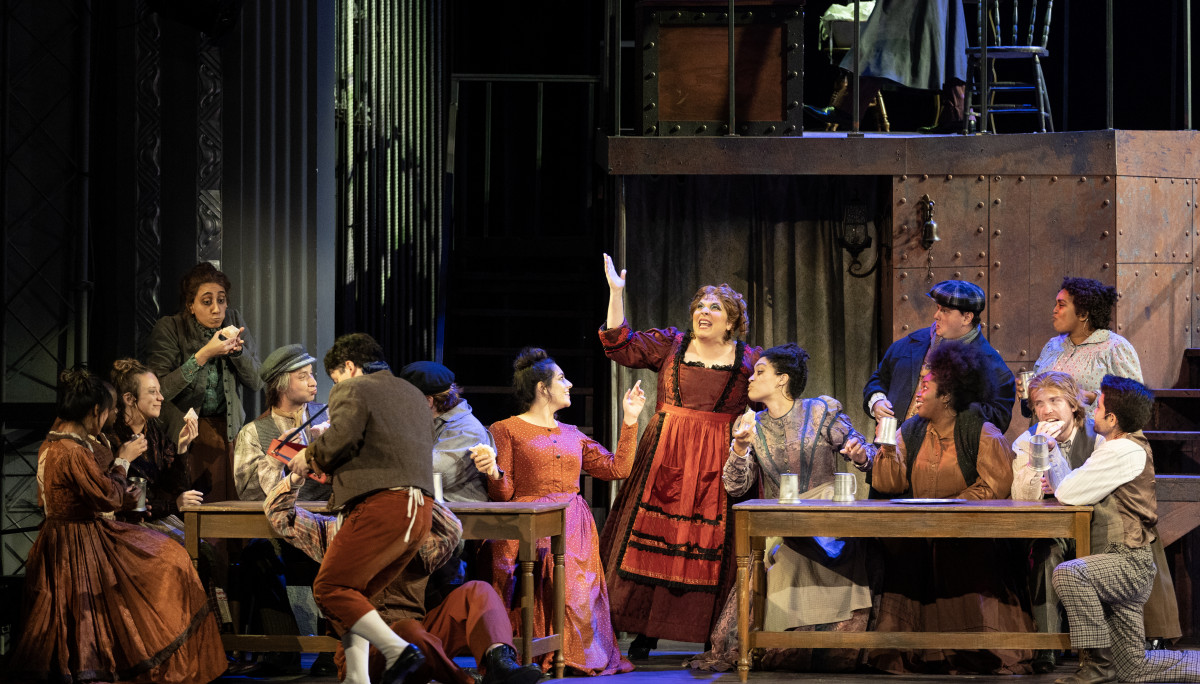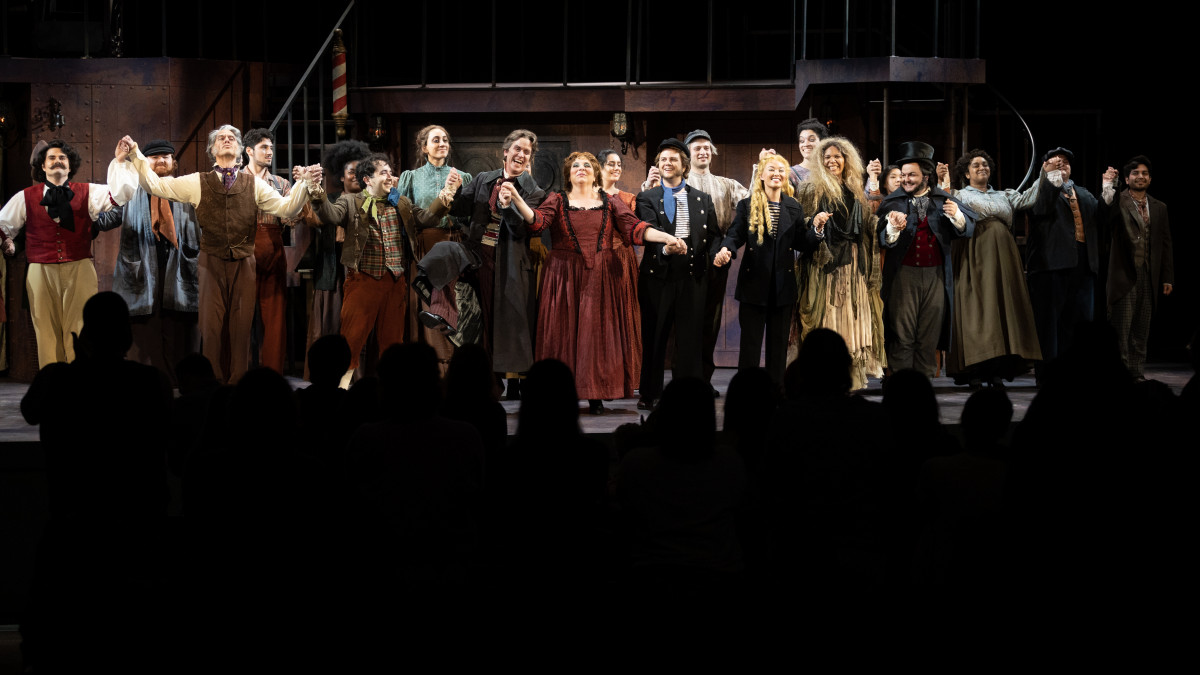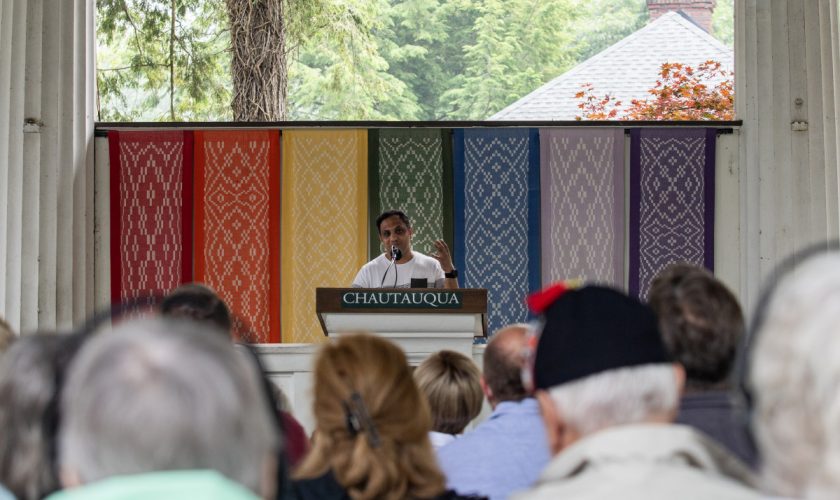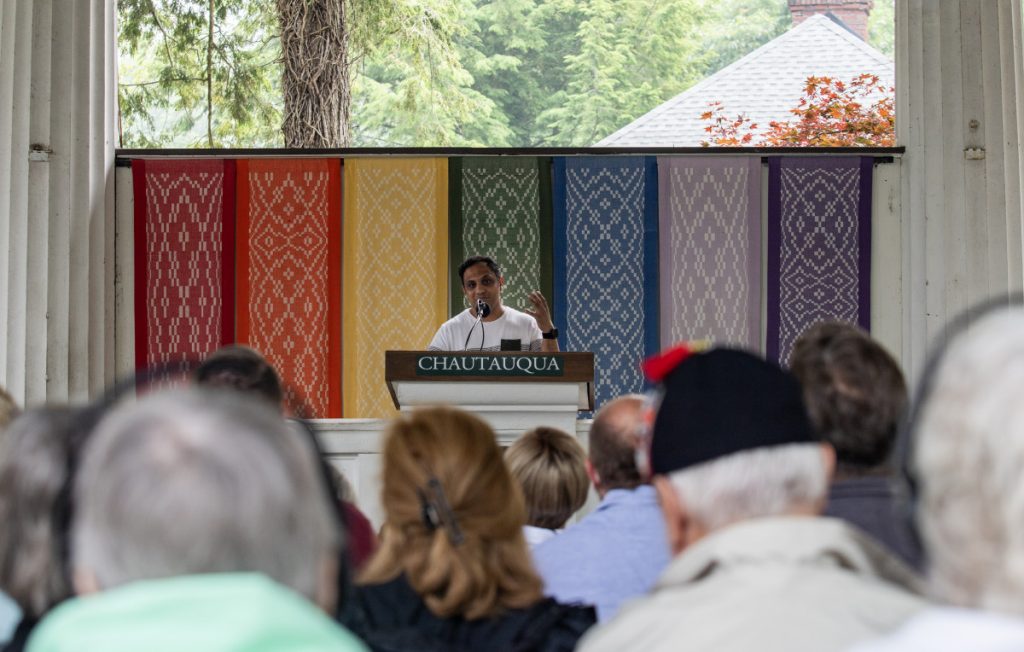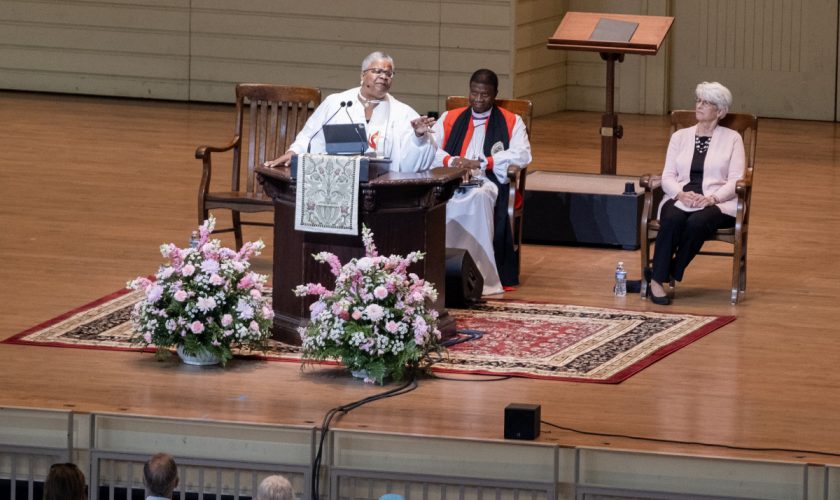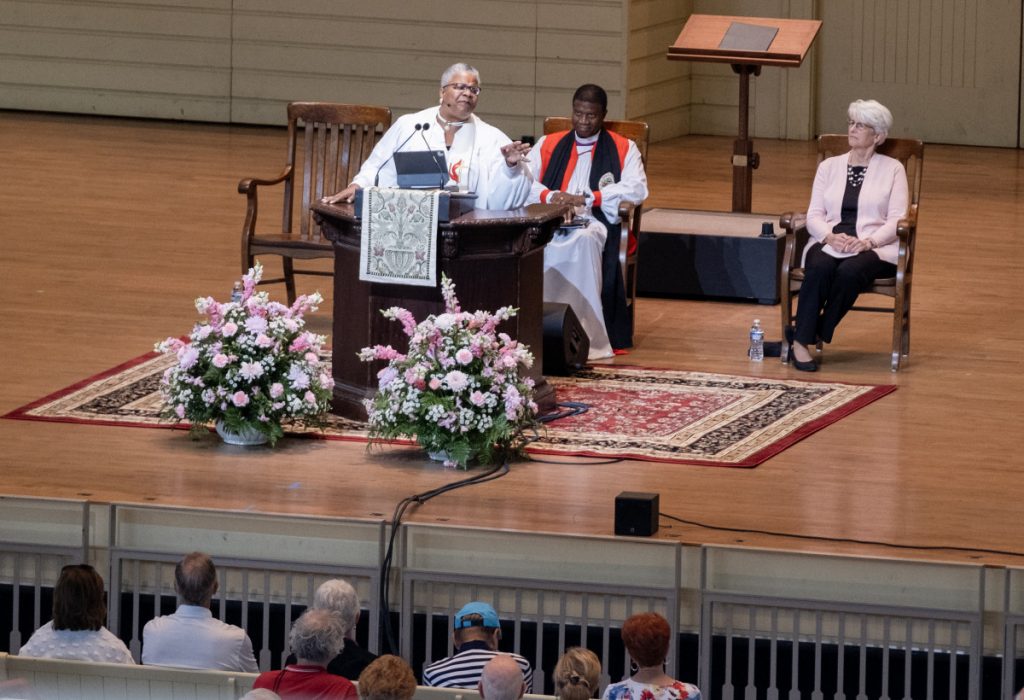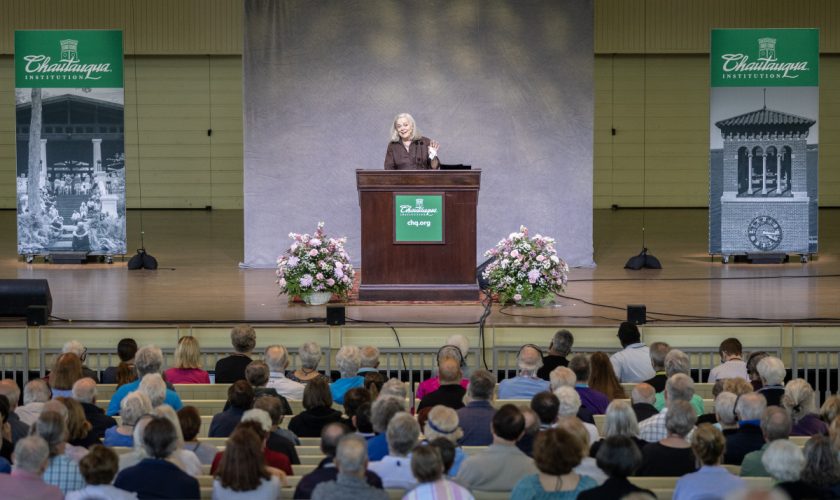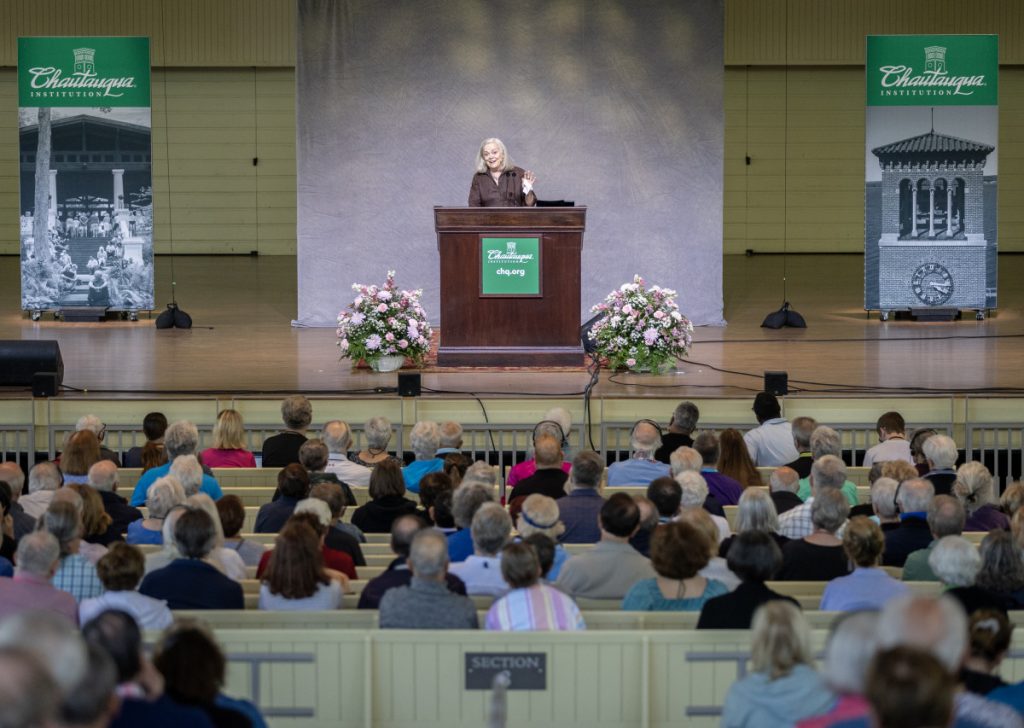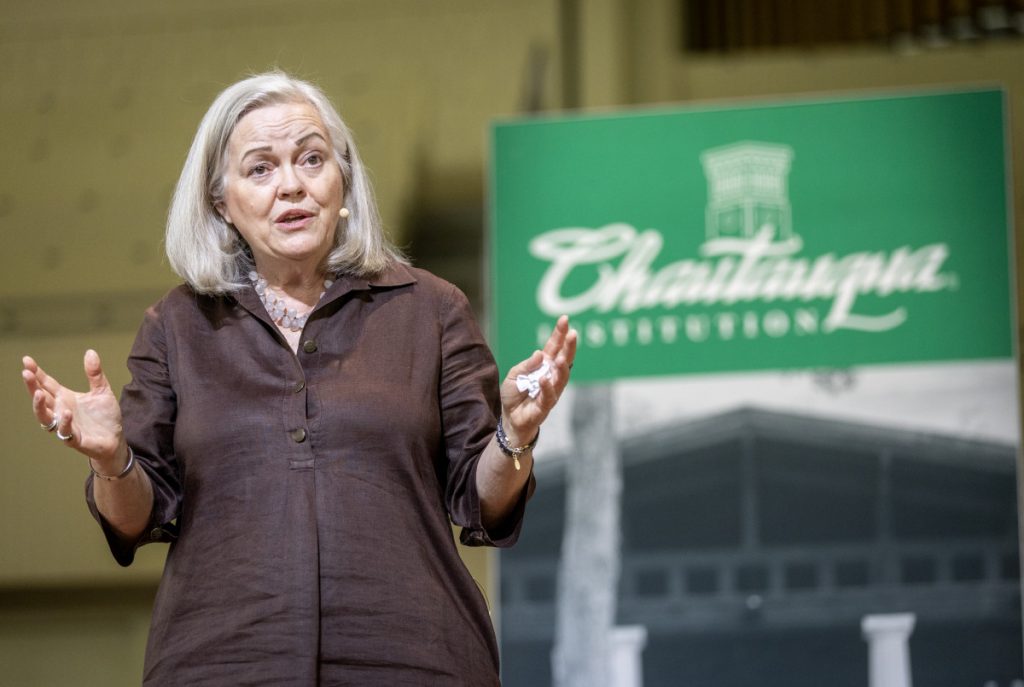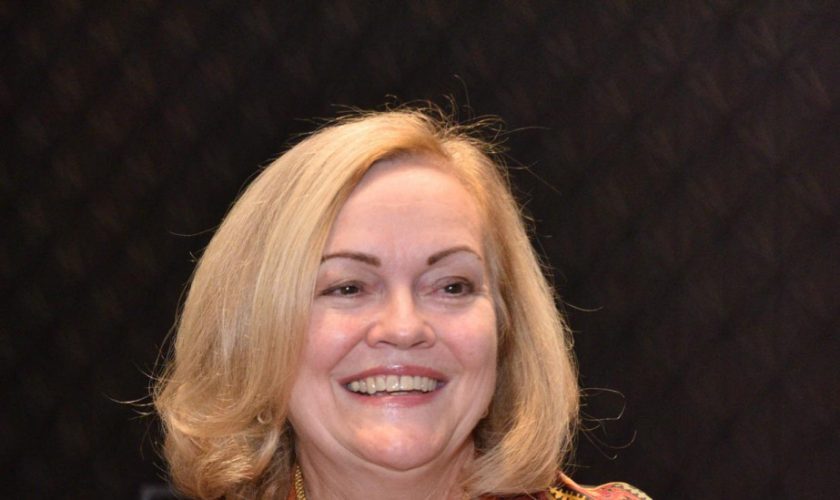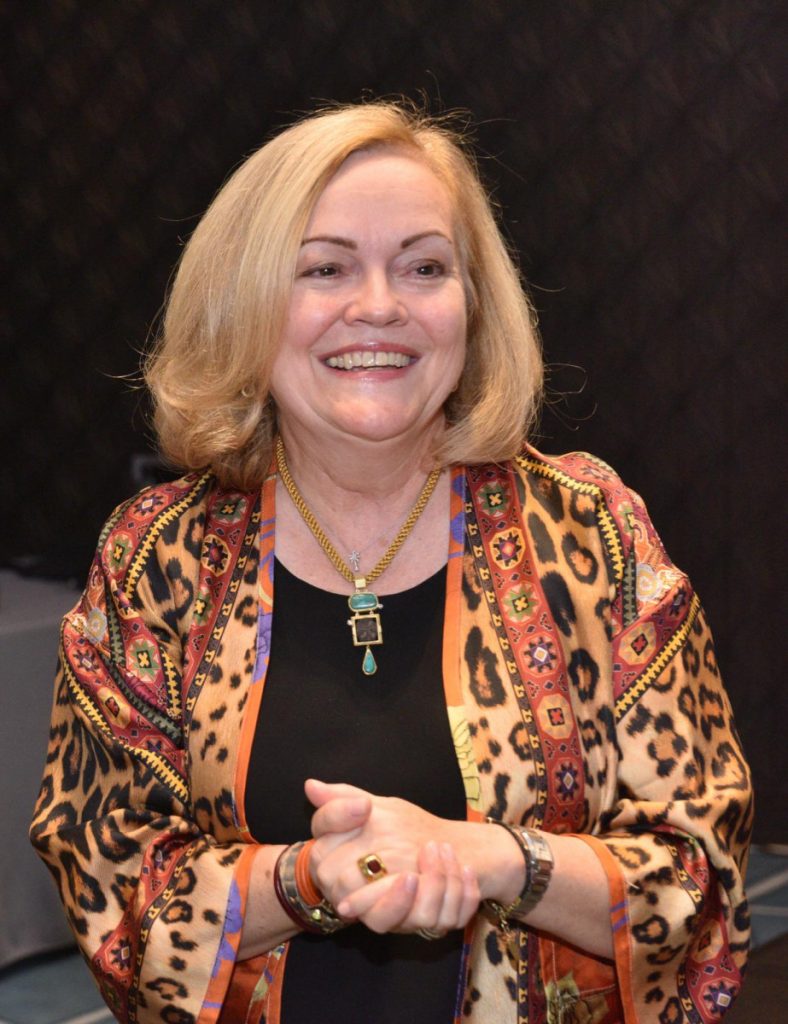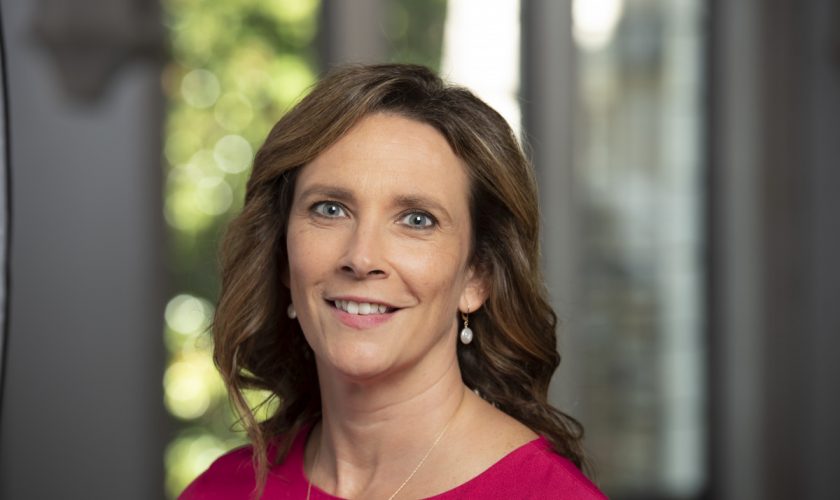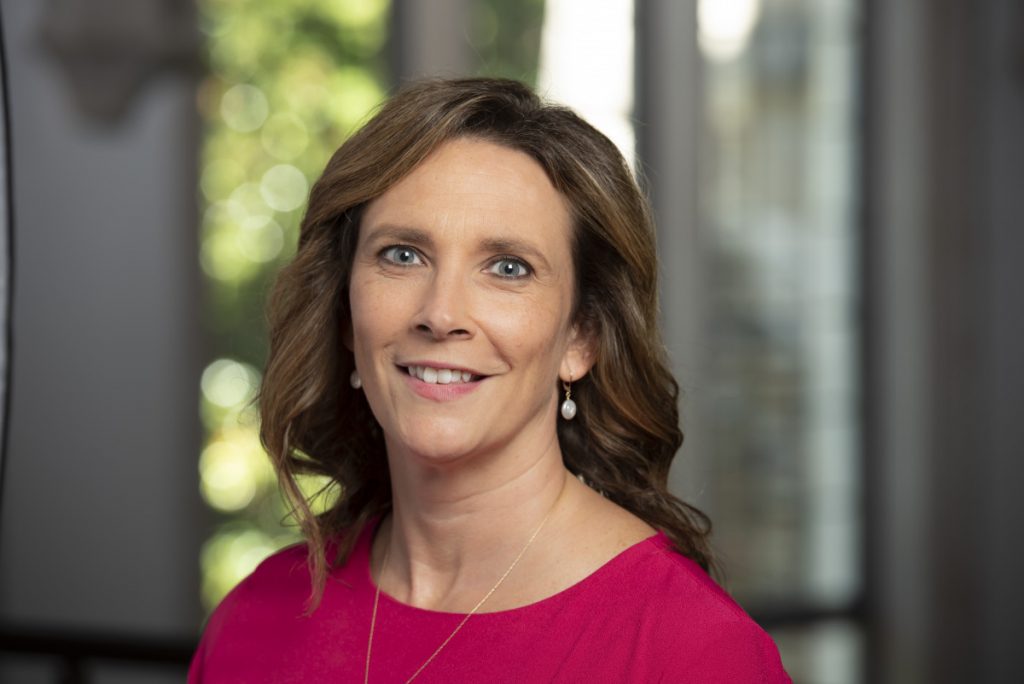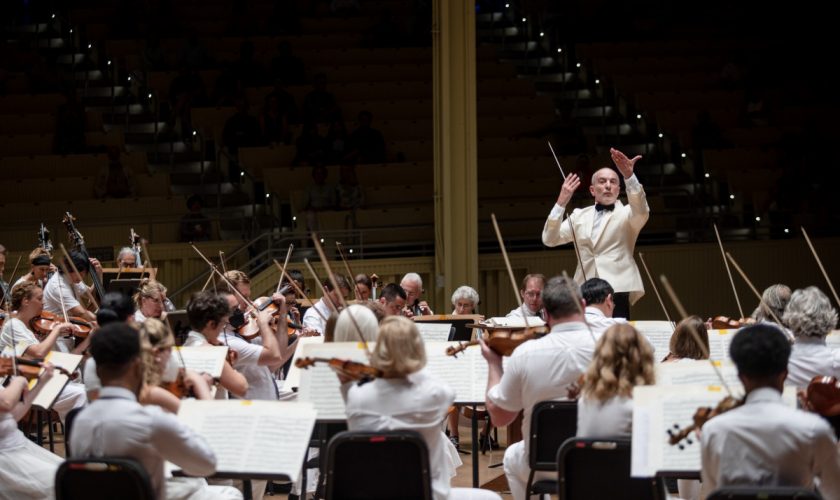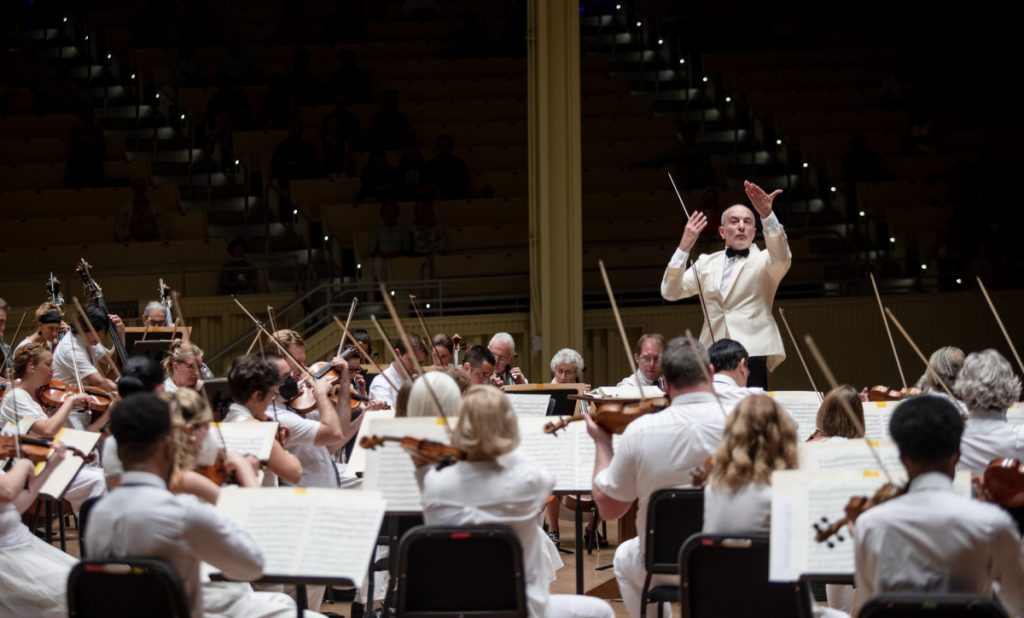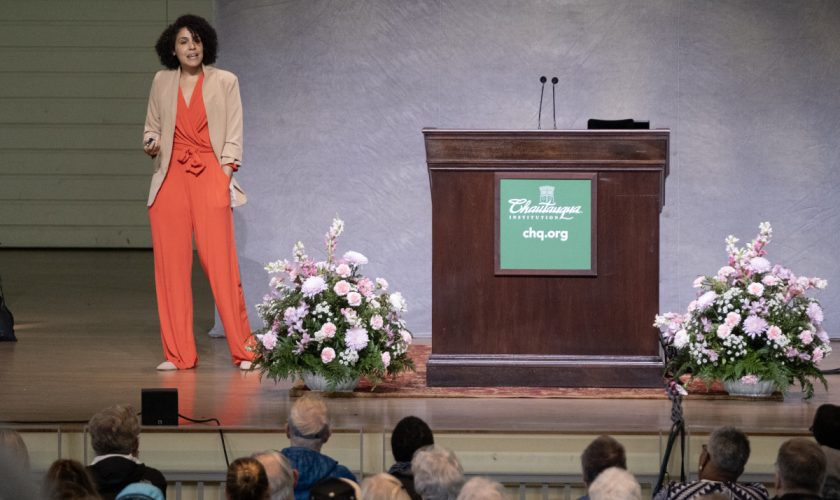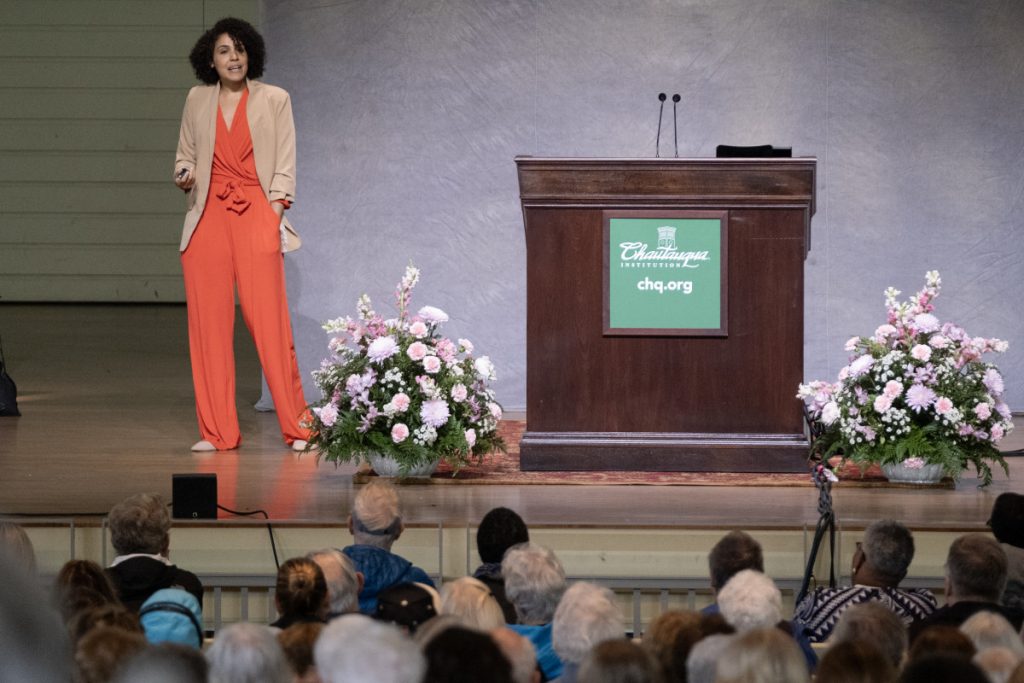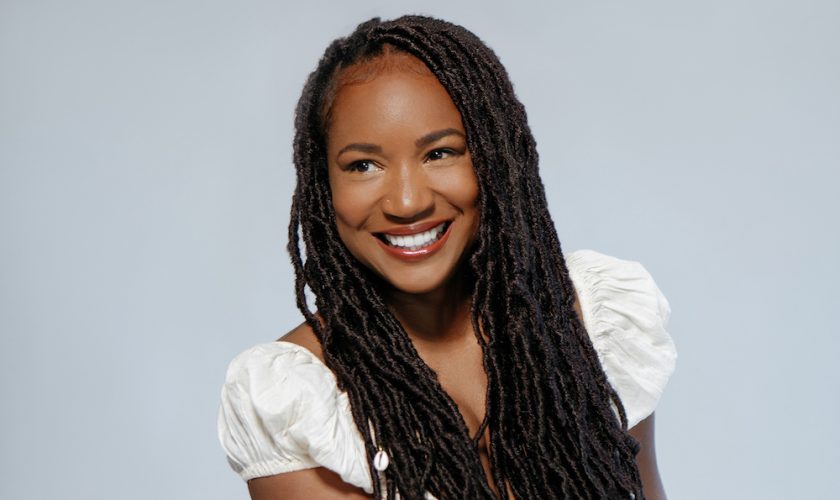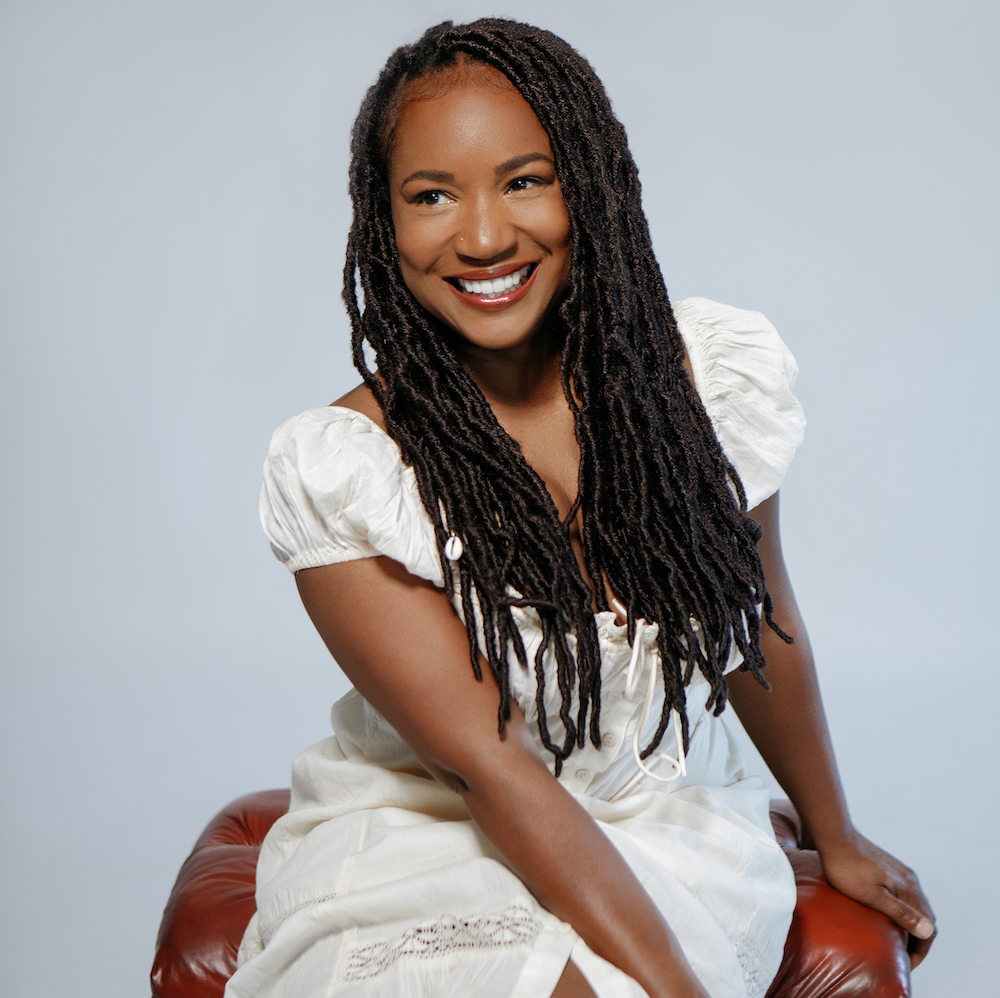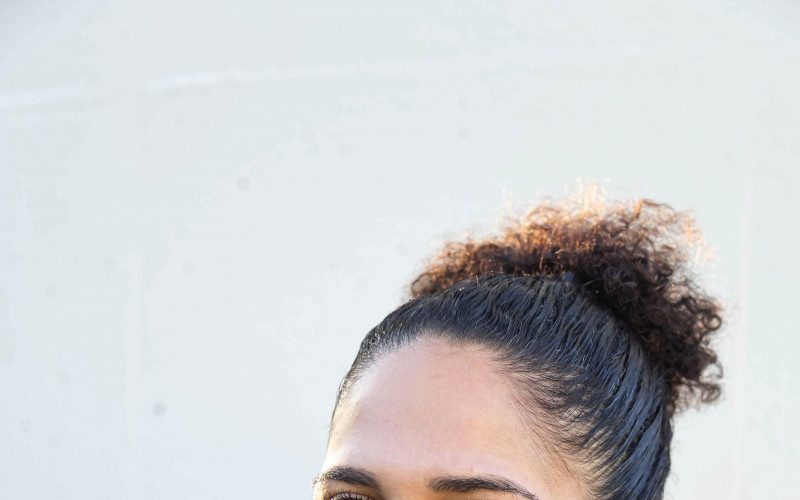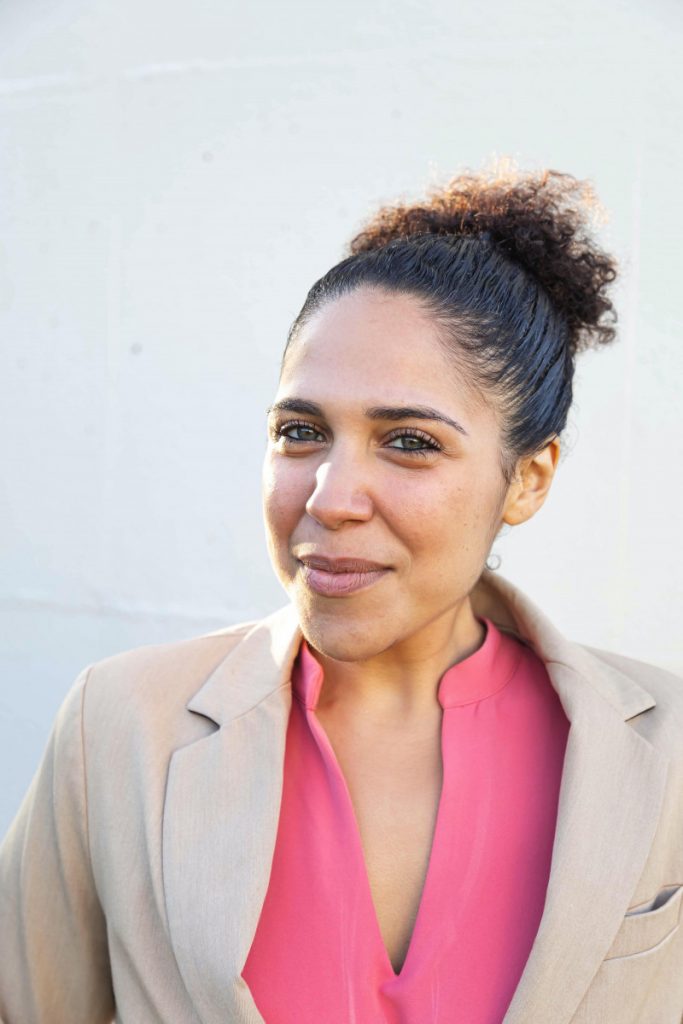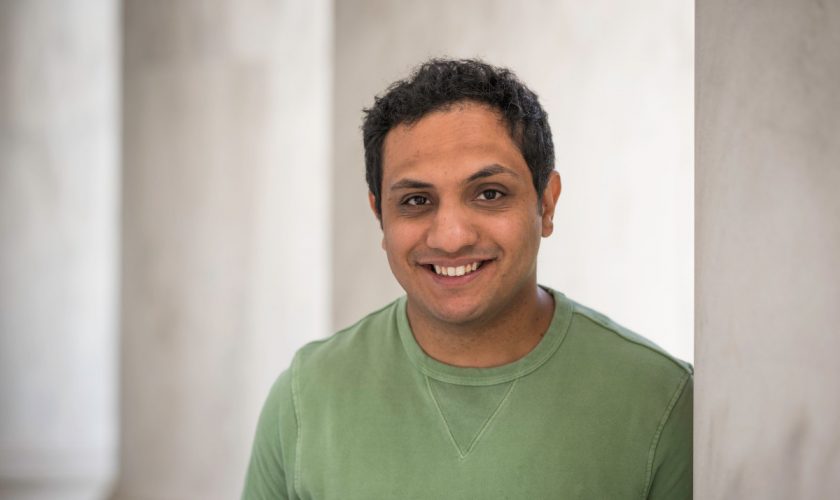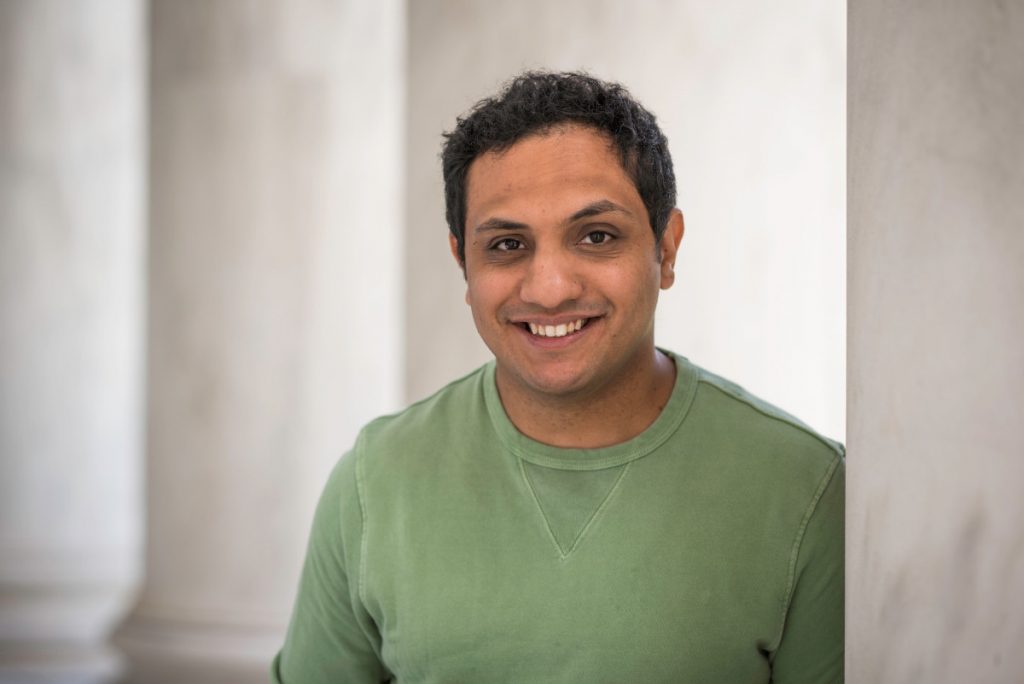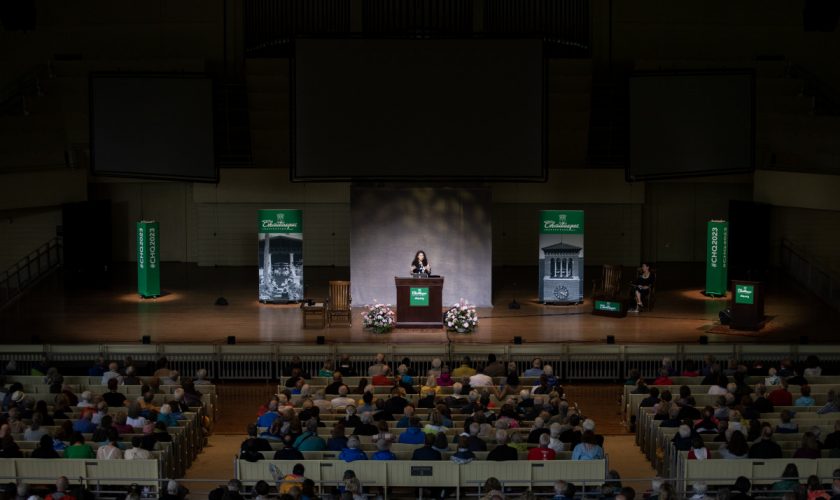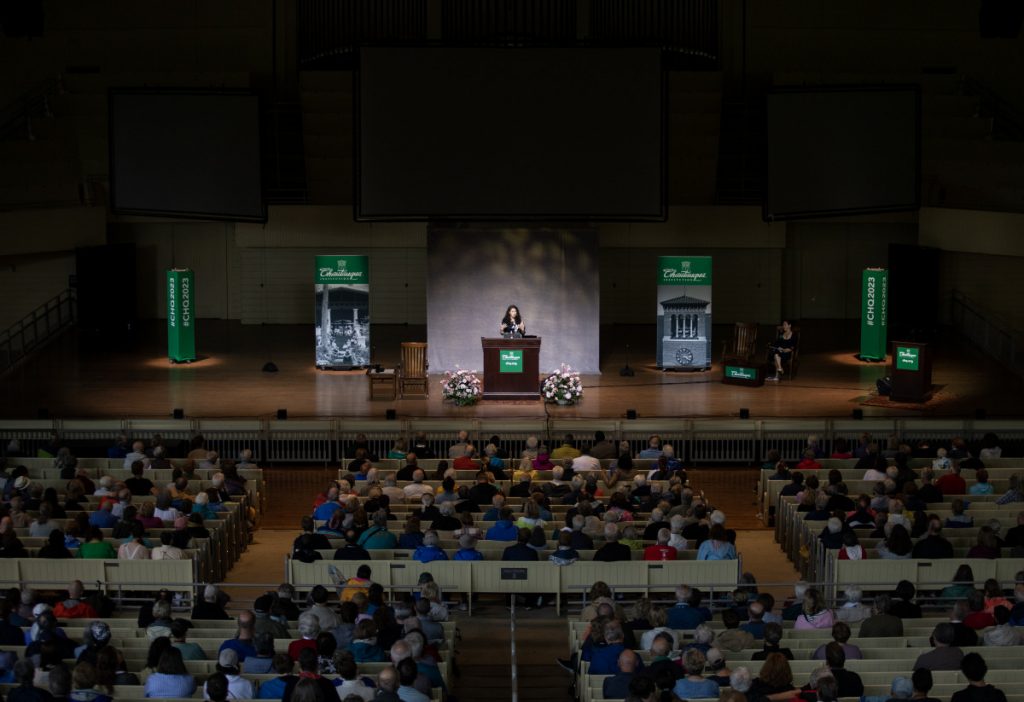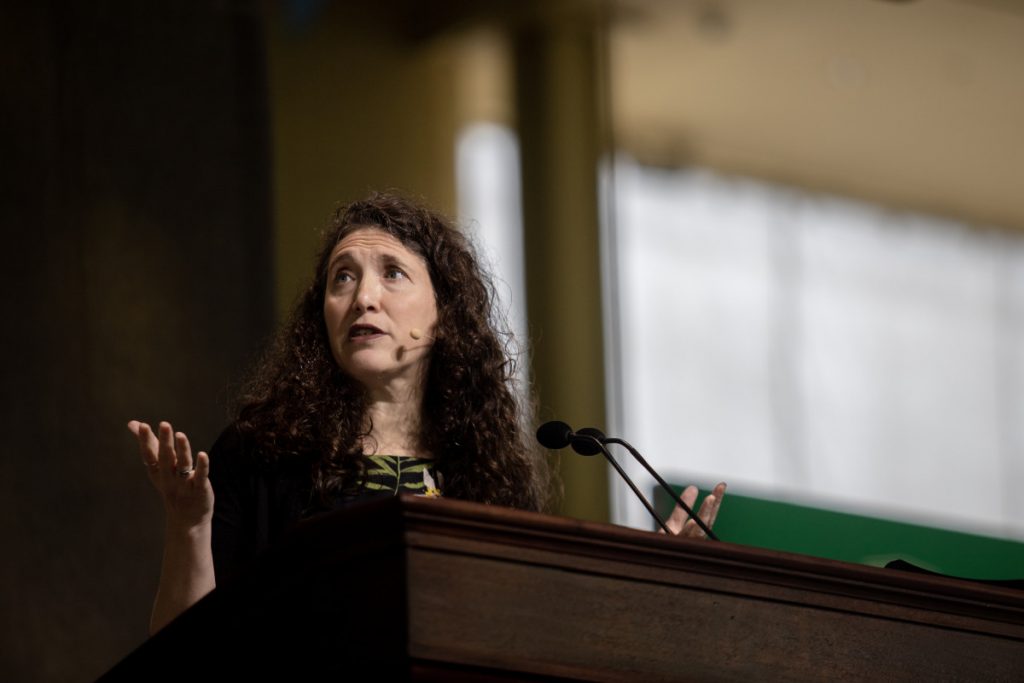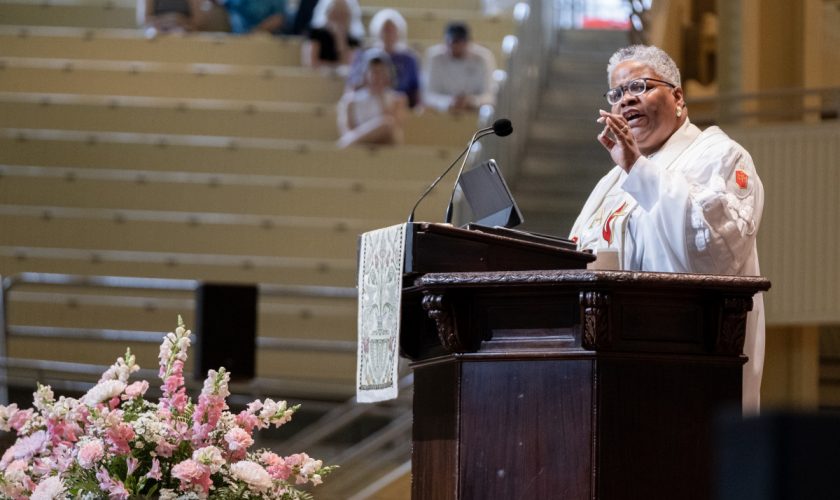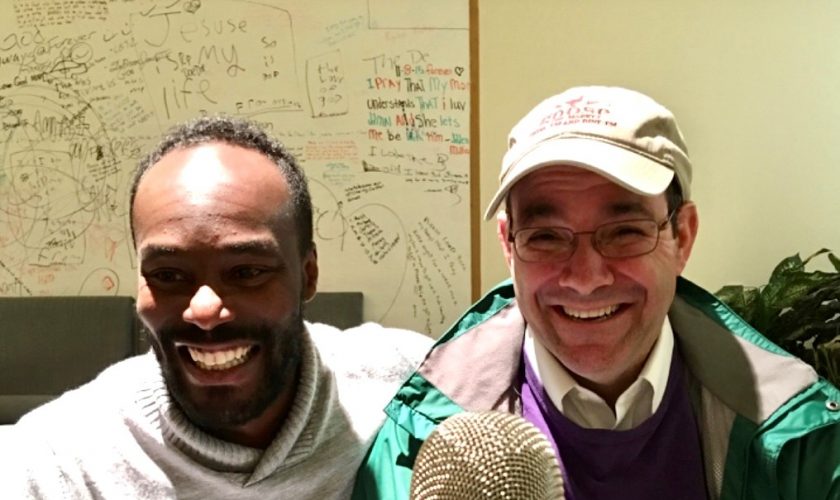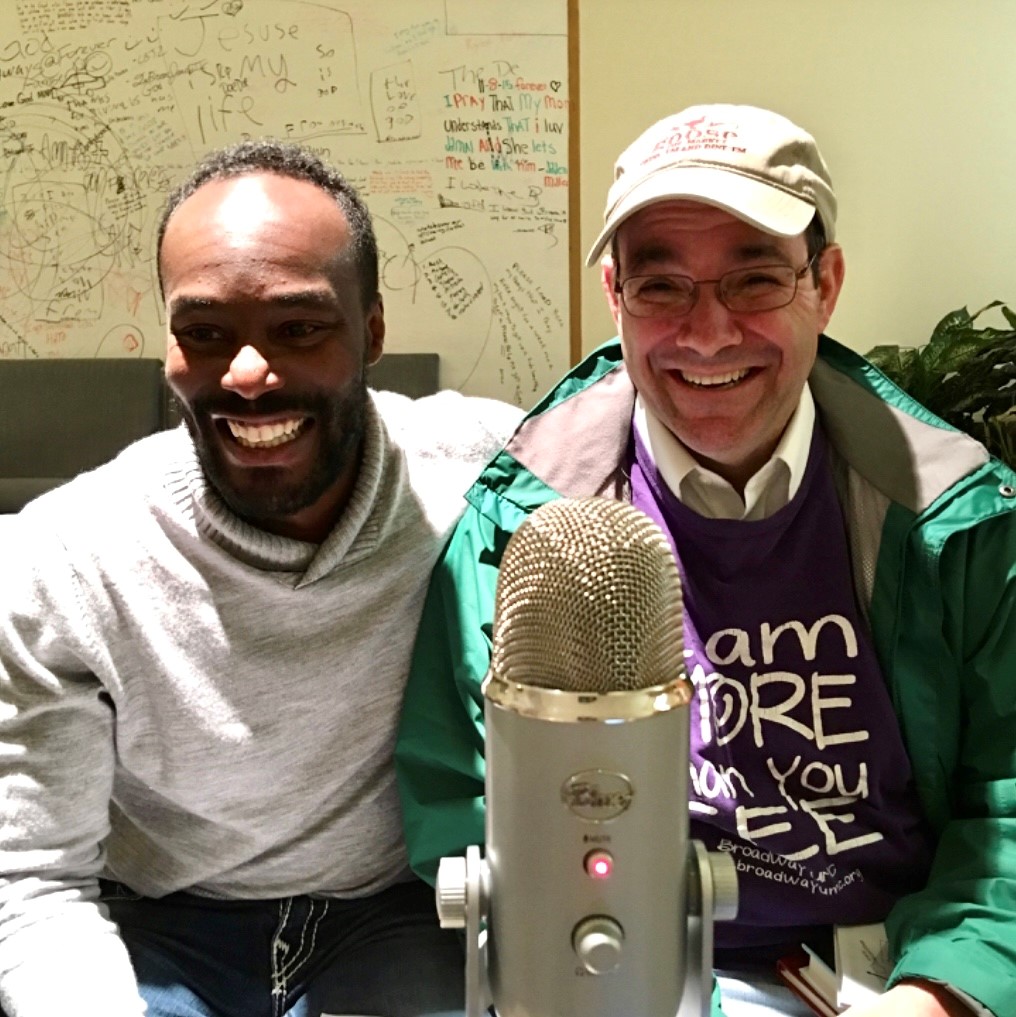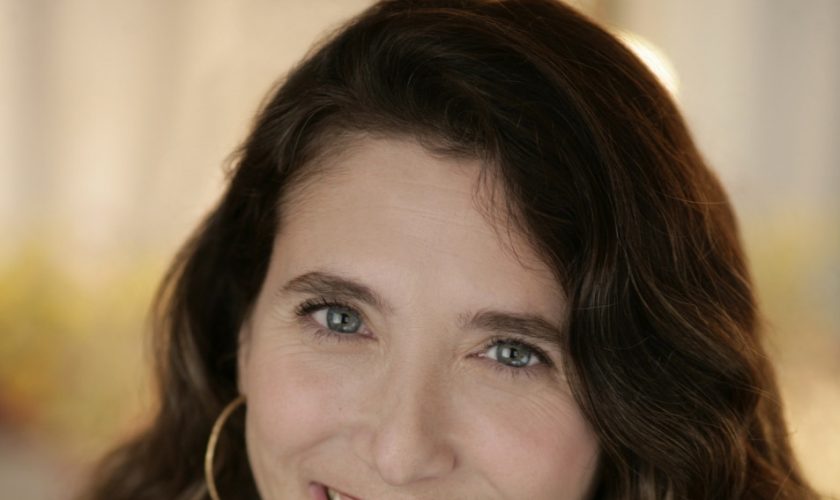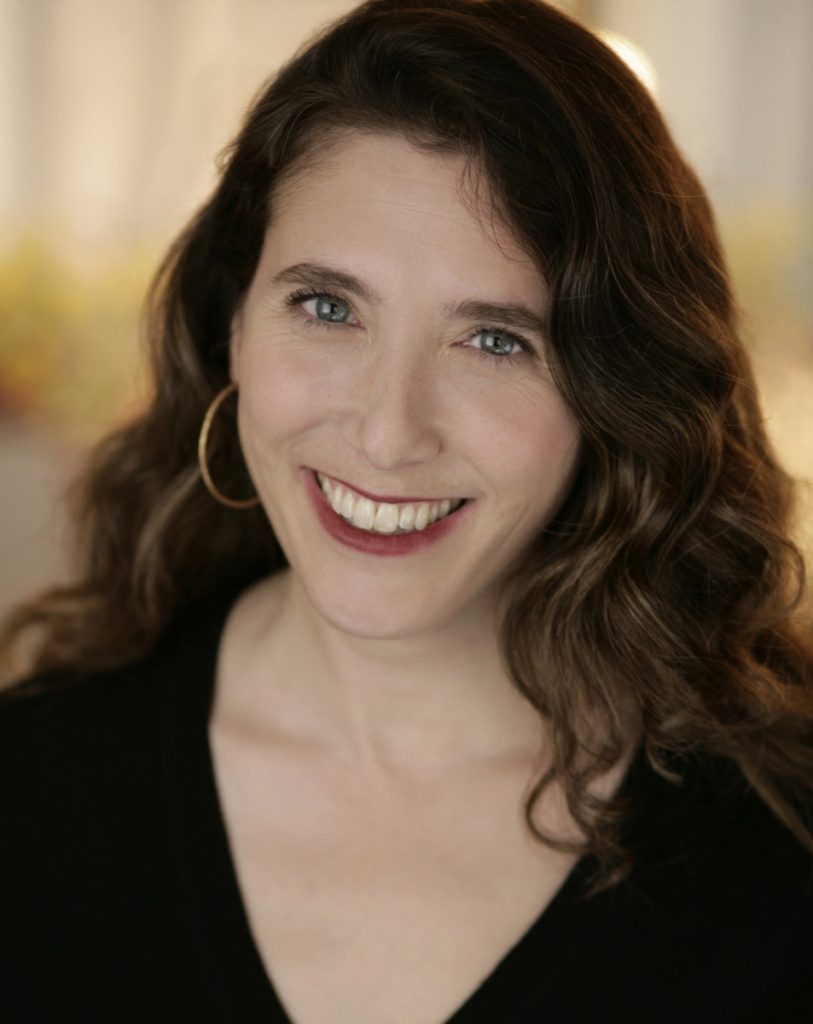Like a meat pie in the oven, Sweeney Todd: The Demon Barber of Fleet Street has been simmering away in Steve Osgood’s mind for years.
“It’s been a piece that I’ve been dreaming about for a long, long time,” said Osgood, the general and artistic director of Chautauqua Opera Company and Conservatory. “You know, I’ve been waiting for an opportunity, wondering if that opportunity would be here.”
That opportunity has come; Osgood’s first time conducting Sweeney Todd is with the first production of Chautauqua Opera’s season, set to open at 4 p.m. today in Norton Hall.
It’s been a massive undertaking to bring the Sondheim work to Norton. Dozens of cast and crew, three stage managers, a fight choreographer, a lighting designer, a set designer — the list goes on. The fact that it was put together in three weeks, Osgood said, “is mind-boggling.”
“Everybody’s been firing on all cylinders. Everybody brought their A-game. That spirit in the room has been so supportive and delightful,” he said. “You can sense that in the company, can sense that on the stage, even as we tell this dark story. There’s a sparkling delight coming from every single individual.”
And what a delightfully dark, sordid tale — the devastated Sweeney Todd, the devious Mrs. Lovett, and their ghoulish solution to their problems.
“Absolutely disgusting; absolutely delightful,” Osgood said. “That’s the narrative; the story, though, is one of profound humanity. … These characters all of those interweaving stories are fascinating and just so deep often, hysterically funny. And then seconds later, profoundly moving. That kind of theatrical storytelling is magical.”
Sondheim’s work premiered on Broadway in 1979, with a book by Hugh Wheeler and orchestration by Jonathan Tunick. Tunick’s original orchestration called for 26 musicians, making Sweeney Todd one of the only contemporary musicals to be scored for a full orchestra. Often, that number tended to get whittled down, Osgood said, just for sheer practicality. But Chautauqua Opera is pulling out all the stops — the full score, 26 musicians. Three trombones alone — “unheard of,” Osgood said, “for a musical theater piece.”
“It is so lush, and the orchestration that Jonathan Tunick made for it is absolutely sparkling,” he said. That is one of the delights of producing, especially conducting, Sweeney Todd.”
Chautauqua Opera leadership is often asked when the company will stage a musical, and Osgood said Sweeney Todd is the perfect marriage of musical theater and opera.
“It has become a classic American musical, but one that lives and thrives in the opera house; we’ve seen that ever since its premiere,” he said. “It has been adopted by opera companies as much as it has by traditional musical theater stages. Everybody can embrace it and take it on from their own angle.”
Stage Director Dennis Whitehead Darling brings an “incredible theatrical sense” to Chautauqua Opera’s production, Osgood said, as the director is “as comfortable in straight theater as he is in musical theater and in opera. What he has brought to this production is really significant and a huge part of what makes it so successful, visually captivating, and nuanced in the storytelling.”
There’s a complexity to the music’s construction and to the text — an elevation of internal rhyme and wordplay that “will blow your mind,” Osgood said. Those elements, he said, are what make Sondheim’s work “live and breathe in this very elevated, operatic musical world. It’s just so great.”

